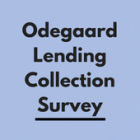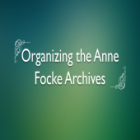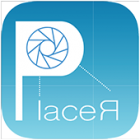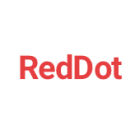
Odegaard Lending Collection Survey
The University of Washington’s Odegaard Undergraduate Library houses several collections of non-academic books, including Life Skills and Good Reads. The librarian responsible for managing these collections wanted to update them in accordance with feedback from underrepresented student groups. We developed a survey to assess the reading interests of two populations: international students and student veterans. The survey was deployed via Google Forms and disseminated through email lists and Facebook groups. We used this feedback to suggest 75 titles. We also created a workflow to document our process so that this effort could be replicated in the future.







